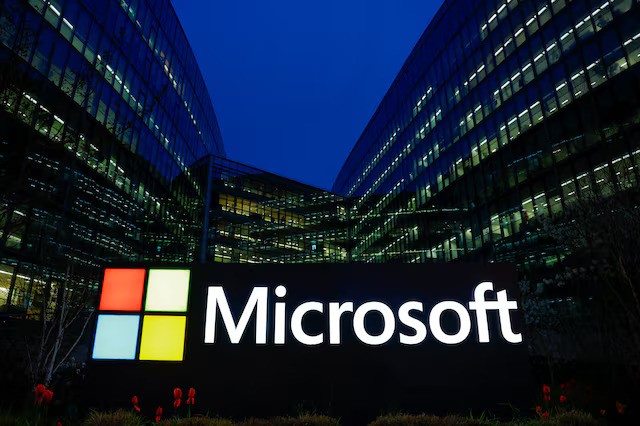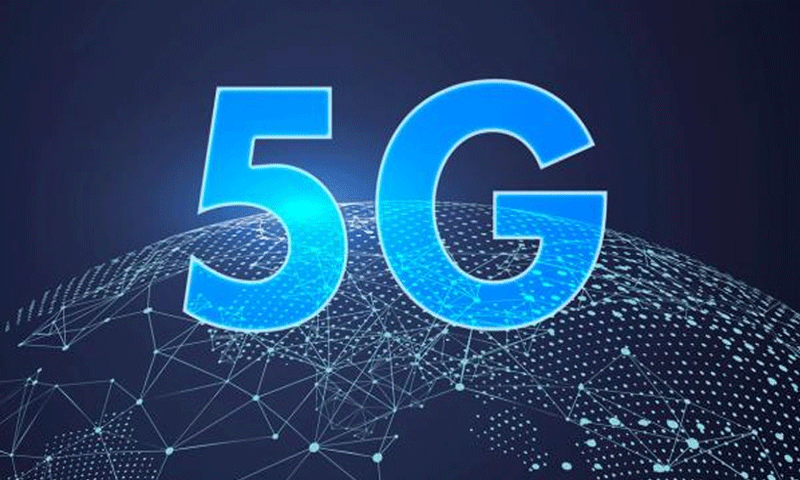- Web Desk
- Jan 29, 2026
Computer pioneer Microsoft turns 50 in the age of AI
-

- AFP
- Mar 31, 2025

Microsoft has been at the heart of computing for half a century, becoming a tech stalwart almost taken for granted as lifestyles embraced the internet.
As the company, founded with a vision of putting computers in every home and office, celebrates its 50th anniversary on Friday, it is looking to boost its fortunes by being a leader in the fast-developing field of artificial intelligence (AI).
“From a storytelling standpoint, they’ve been a boring company and a boring stock,” eMarketer analyst Jeremy Goldman said of the Richmond, Washington-based behemoth.
“It’s funny because they have a USD2.9 trillion market cap, and that is huge,” he continued, referring to Microsoft’s value based on its share price.
The only company with a higher market cap is iPhone maker Apple.
Cloud computing is fueling Microsoft’s revenue with the help of its ubiquitous Office software, now hosted online and no longer released in boxes of floppy disks or CDs.
Microsoft announces shut down of Skype
“It’s not a very sexy infrastructure, but it’s a very valuable one,” Goldman said of Microsoft’s data centers and software at the foundation of its cloud-computing platform.
Clouds were the stuff of weather forecasts rather than computing when Bill Gates and childhood friend Paul Allen founded what was first called “Micro-Soft” in 1975.
They launched the MS-DOS operating system that became known as “Windows” and went on to run most of the world’s computers.
Microsoft Office programs including Word, Excel and PowerPoint became standard business tools, even fending off free Google Docs software.
“Microsoft had a lot of businesses that were weaker and challenged — the perfect example is Office,” Goldman said.
“That Office is still such a meaningful business for them says something about the way they were able to innovate.”
Current chief executive Satya Nadella championed a Microsoft shift to making its software available on just about any device as subscription services hosted in the cloud.
The move likely saved Microsoft from seeing free services like Google Docs reduce their market share to zero, the analyst said.
Microsoft remains in the shadow of other US tech giants when it comes to offerings such as social networks, smartphones and the AI-infused digital assistants that have become woven into people’s lives, but it is not for lack of effort.
Microsoft introduced Xbox video game consoles in 2001, steadily building up its stable of studios, making the blockbuster buy of Activision Blizzard two years ago and adding an online subscription service for players.
And despite its launch of the Bing search engine in 2009, Google still dominates that market.
Microsoft in 2016 bought career-focused social network LinkedIn, which has seen steady growth. But it still lacks the reach of Meta’s Facebook or Instagram, or the influence of Elon Musk’s X (formerly Twitter).
Microsoft is among those in the running to buy TikTok, which faces a ban in the United States if not sold by China-based ByteDance.
While Apple and Google have excelled at making it easy or even fun for users to engage with products, that has been an “Achilles heel” for Microsoft, according to Goldman.
“It’s never been a strong suit of theirs,” the analyst said.
Known for a focus on sales rather than innovation, Steve Ballmer, who followed Gates as chief of Microsoft from 2000 to 2013, has been faulted for missing the shift to smartphones and other mobile computing devices.
His successor, Nadella, took over with a vow to make Microsoft a “mobile-first, cloud-first” company and Microsoft has since invested heavily in AI, taking a stake in ChatGPT-maker OpenAI and building the technology into offerings including Bing, though to little avail.
Independent analyst Jack Gold believes that despite those investments and efforts, Microsoft lags in AI because it lacks its own chips or foundation model.
“They are not as advanced in that as AWS and Google, so they’re still playing a little bit of catchup in that space,” Gold said of Microsoft.
Google Cloud’s revenue growth is on pace to overtake Microsoft’s Azure for second place in the market in two years, the analyst said.




